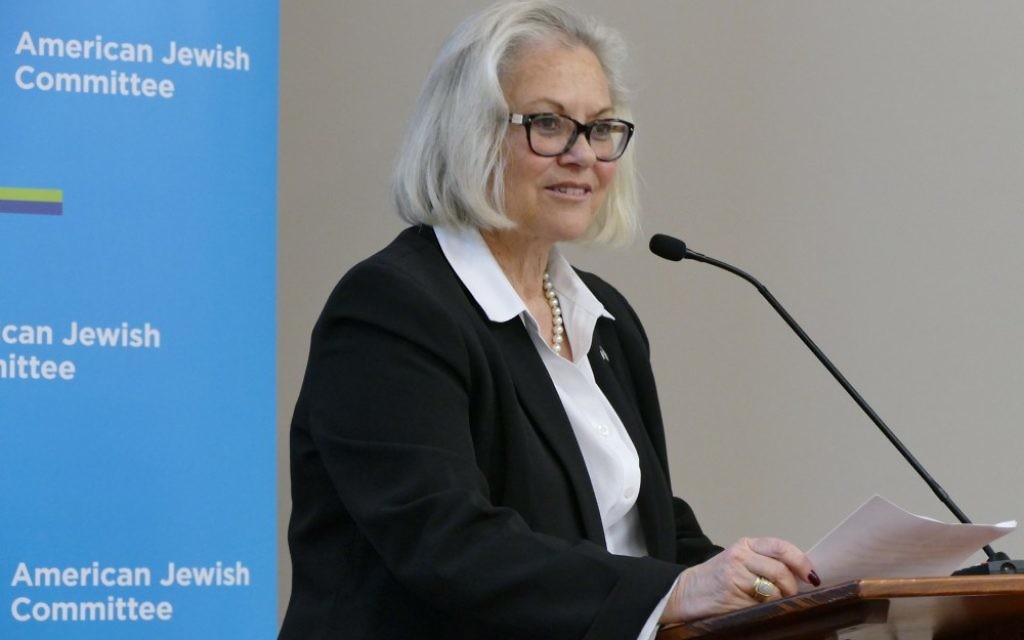Opening Eyes on Black Lives
One perk of this job is that I sometimes wind up on guest lists with actual community leaders. So it was that I attended a dinner party at the home of the Israeli consul general Wednesday night, Aug. 31.
Israel’s naval attaché at the embassy in Washington, Capt. Gil Aginsky, spoke about the mission of the Israeli navy to protect the natural gas fields in the eastern Mediterranean and about the increasing naval threat presented by Hezbollah and its missiles.
But the night wasn’t about Capt. Aginsky or Israel’s military or economic needs. In many ways, it wasn’t even about Israel.
Get The AJT Newsletter by email and never miss our top stories Free Sign Up
It was an example of Israeli Ambassador Judith Varnai Shorer acting as a representative — not the representative, but a representative — of the Jewish people as a whole in addressing the rift between the black and Jewish communities.
In addition to the likes of American Jewish Committee Atlanta President Greg Averbuch, Temple Rabbi Peter Berg, Attorney General Sam Olens, and Lauren Grien, the current president of The Temple and former president of AJC Atlanta, Shorer’s 40 or so guests included prominent black leaders, such as the Rev. Raphael Warnock of Ebenezer Baptist Church, state Sen. Vincent Fort and Atlanta City Council President Ceasar Mitchell.
While the support of each of those leaders has value to Israel and appears to remain rock-solid, the motivation for the meeting was an American development: the recent Movement for Black Lives platform and the uproar over its apartheid and genocide accusations against Israel.
Each person had a scroll tied with a ribbon at his or her seat. It wasn’t some special certificate suitable for framing to commemorate a lovely evening; it was a printout of a column Harvard law professor Alan Dershowitz wrote for The Boston Globe in response to the offensive platform, particularly its claim that Israel is committing genocide against the Palestinians.
“Until and unless Black Lives Matter removes this blood libel from its platform and renounces it, no decent person — black, white, or of any other racial or ethnic background — should have anything to do with it,” he wrote, adding that supporting a movement that promotes anti-Semitism just because it also does good things “is the beginning of the road to accepting racism.”
People at my table quietly skimmed the column while Shorer read a statement criticizing the platform and defending Israel. No one questioned our hostess on what she said.
The small talk over dessert and coffee revealed that the reason for the silence wasn’t necessarily agreement. Instead, most of the black leaders at the dinner didn’t know about the controversy, which makes sense: If your primary concerns revolve around justice for the black community, you’re not likely to pay much attention to side issues thrown into the platform in the interest of intersectionality (trying to connect a wide range of supposedly or actually oppressed groups with the idea of all for one and one for all).
The positive view of that reaction is that it indicates intersectionality is failing; black problems in America and Palestinian issues in the Middle East can and should be addressed on their own. The negative view is that the consul general that night and the organized Jewish community in general might be failing to connect with the next generation of black leaders, those who are marching today and will fill elected offices tomorrow.






comments